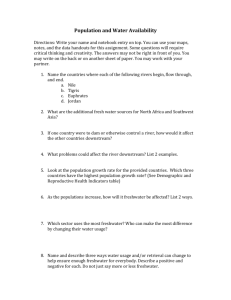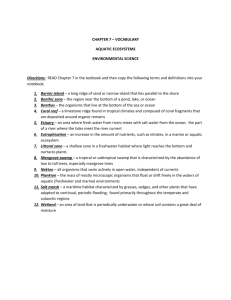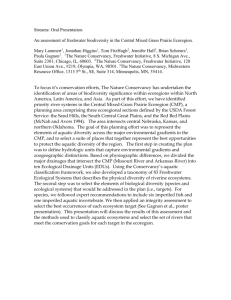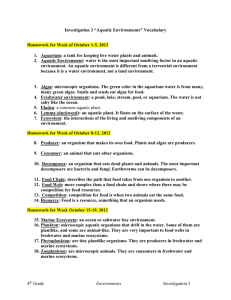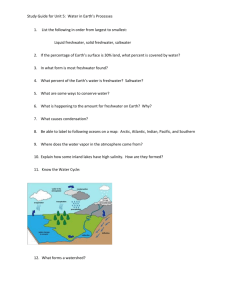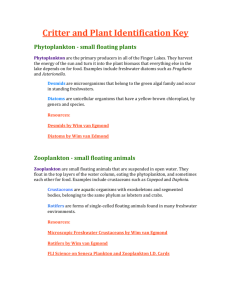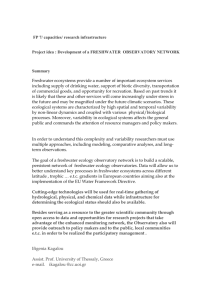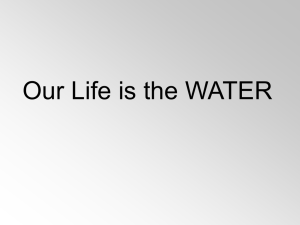The global water system
advertisement
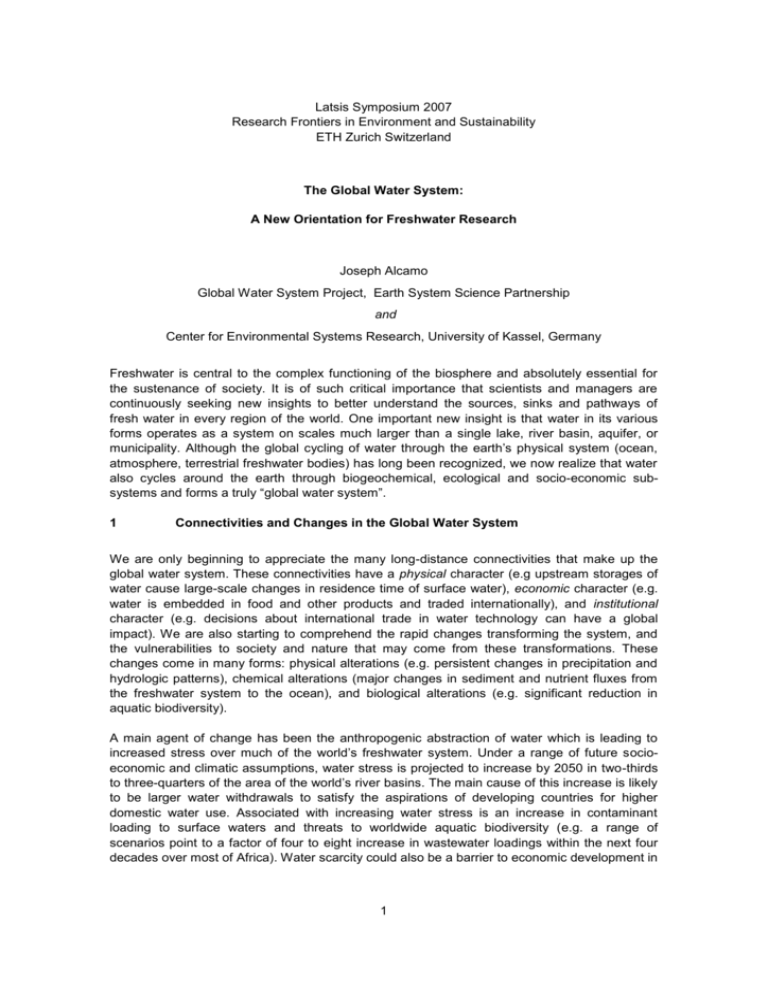
Latsis Symposium 2007 Research Frontiers in Environment and Sustainability ETH Zurich Switzerland The Global Water System: A New Orientation for Freshwater Research Joseph Alcamo Global Water System Project, Earth System Science Partnership and Center for Environmental Systems Research, University of Kassel, Germany Freshwater is central to the complex functioning of the biosphere and absolutely essential for the sustenance of society. It is of such critical importance that scientists and managers are continuously seeking new insights to better understand the sources, sinks and pathways of fresh water in every region of the world. One important new insight is that water in its various forms operates as a system on scales much larger than a single lake, river basin, aquifer, or municipality. Although the global cycling of water through the earth’s physical system (ocean, atmosphere, terrestrial freshwater bodies) has long been recognized, we now realize that water also cycles around the earth through biogeochemical, ecological and socio-economic subsystems and forms a truly “global water system”. 1 Connectivities and Changes in the Global Water System We are only beginning to appreciate the many long-distance connectivities that make up the global water system. These connectivities have a physical character (e.g upstream storages of water cause large-scale changes in residence time of surface water), economic character (e.g. water is embedded in food and other products and traded internationally), and institutional character (e.g. decisions about international trade in water technology can have a global impact). We are also starting to comprehend the rapid changes transforming the system, and the vulnerabilities to society and nature that may come from these transformations. These changes come in many forms: physical alterations (e.g. persistent changes in precipitation and hydrologic patterns), chemical alterations (major changes in sediment and nutrient fluxes from the freshwater system to the ocean), and biological alterations (e.g. significant reduction in aquatic biodiversity). A main agent of change has been the anthropogenic abstraction of water which is leading to increased stress over much of the world’s freshwater system. Under a range of future socioeconomic and climatic assumptions, water stress is projected to increase by 2050 in two-thirds to three-quarters of the area of the world’s river basins. The main cause of this increase is likely to be larger water withdrawals to satisfy the aspirations of developing countries for higher domestic water use. Associated with increasing water stress is an increase in contaminant loading to surface waters and threats to worldwide aquatic biodiversity (e.g. a range of scenarios point to a factor of four to eight increase in wastewater loadings within the next four decades over most of Africa). Water scarcity could also be a barrier to economic development in 1 rapidly industrializing countries – A recent scenario analysis showed that competition for water resources could pose a risk to the expansion of electricity capacity in India. 2 A New Orientation in Water Research and Management How should we respond to this new awareness of changes and vulnerabilities in the global water system? A major task is to enlarge the scope of water research and management from the local, watershed and regional level to include the global scale. This can be accomplished in many ways: Expand the scope of remote earth observations to include the comprehensive monitoring of new water-related indicators from satellites and other platforms. Current earth observation programs, which focus on physical indicators, should be expanded to cover ecological, biogeochemical and anthropogenic variables (e.g. spatial variation of water quality, state of aquatic ecosystems, anthropogenic water use). Conduct new large-scale field experiments and surveys to increase basic knowledge about the global water system. New synoptic scale physical data are needed to better understand connectivities in the global water system (e.g. relationships between climate, land use, and hydrology). New worldwide socio-economic data sets are needed to better understand the global distribution of vulnerabilities of society to changes in the water system. Develop new tools for analyzing the operation of the global water system. A new generation of global water models is required for comprehending and anticipating future changes in the global water system. These models must integrate global-scale information about the socioeconomic system, land use, climate, hydrology and aquatic ecosystems. Model development should go hand-in-hand with the establishment of new global data sets of vulnerability and other indicators. Conduct global research on the institutional aspects of water use. The scientific community is only beginning to understand the complex impact of government organizations, laws, and other institutions on the global water system. Research is needed to better understand the current role of formal and informal institutions in governing water and the need and feasibility of managing water problems at the global scale. Achieve a new integration of water science and policy. Policy intervention is needed for helping society adapt to unwanted changes in the global water system. Since intervention requires substantial input from the scientific community, a new partnership between water researchers and policymakers is needed at the global level. To build this partnership the water community should draw on the experience of the Intergovernmental Panel on Climate Change which has successfully brought together climate researchers and policymakers. Establish a new form of education and training in the water sciences with the aim to train a new generation of global water scientists and globally-informed scientists working at the local and watershed scale. Curricula in hydrology, ecology, economics, management and other water-related disciplines should be expanded to encompass the global perspective. Acknowledgements: The author acknowledges the contributions of his colleagues at the Global Water System Project to the ideas in this abstract, especially Charles J. Vörösmarty, Robert J. Naiman, Dennis P. Lettenmaier, and Claudia Pahl-Wostl. 2
